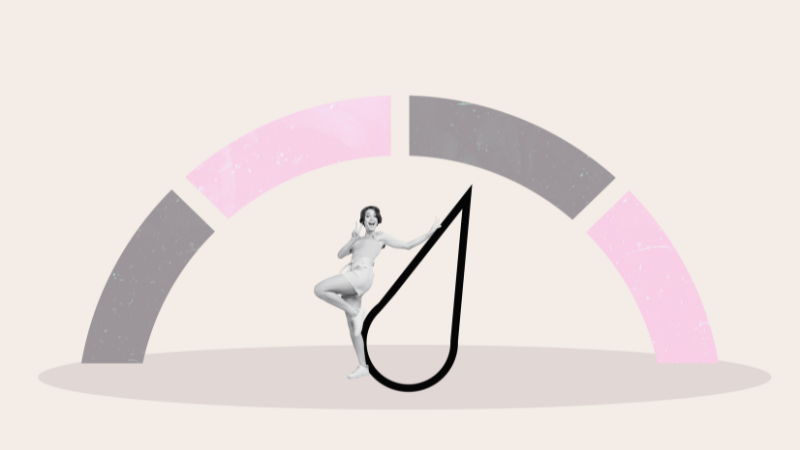How to Boost Your Credit Score for Mortgage Success: Expert Guide


Did you know that simply registering to vote could add 50 points to your credit score for mortgage applications?
Surprisingly, there isn’t a specific credit score you need for a mortgage – primarily because there isn’t just one universal credit score. However, the higher your score, the better your chances of securing the mortgage you’re after. Your credit information comes from three main agencies – Experian, Equifax, and TransUnion – which compile crucial details that lenders review when assessing your application.
Missing even a single payment can leave a negative mark on your credit report and significantly reduce your credit rating. This can be particularly problematic when lenders check your credit score for mortgage loans. If you’re wondering what credit rating you need for a mortgage, the answer depends on individual lenders’ criteria and the type of mortgage you’re seeking.
Your credit report contains data from five main sources: electoral roll, court records, search history, fraud data, and account information. Importantly, if you’re not registered to vote, this can potentially damage your mortgage chances. Therefore, understanding how to improve your credit score before applying becomes essential for mortgage success.
Understand What Affects Your Credit Score
Understanding how your credit score works is essential for increasing your chances of mortgage approval. Unlike what many believe, your credit score isn’t a mysterious number that appears out of nowhere. Instead, it’s calculated using specific factors that reflect your financial behaviour.
How credit scores are calculated
Credit scoring systems analyse your financial habits to predict how likely you are to repay debts. In the UK, three main credit reference agencies – Experian, Equifax, and TransUnion – each compile their own credit reports and scores based on slightly different criteria and scales. Experian scores range from 0-999, whereas Equifax scores range from 0-700, and TransUnion’s from 0-710.
The most influential factor affecting your score is payment history, accounting for approximately 35% of your total score. This includes whether you’ve paid bills on time or missed payments. The second biggest factor is amounts owed, making up about 30% of your score. This considers both your total debt and your credit utilisation ratio – the percentage of available credit you’re currently using.
Additionally, your credit score factors in:
- Length of credit history (15%) – longer histories generally boost scores
- Credit mix (10%) – successfully managing different types of credit
- New credit (10%) – frequent applications can lower your score
Other elements that influence your score include being registered on the electoral roll, keeping credit usage below 25% of your limit, and maintaining stable living arrangements.
What credit rating do you need for a mortgage?
Contrary to popular belief, there isn’t one specific credit score required for mortgage approval. Each lender sets their own criteria, and your score is just one factor they consider. Nevertheless, higher scores undoubtedly improve your chances of approval and access to better interest rates.
As a general guideline, Experian categorises scores as: excellent (961-999), good (881-960), fair (721-880), poor (561-720), and very poor (0-560). Those with excellent or good scores typically access the most competitive mortgage deals, whilst those with fair scores may still qualify but with fewer options.
Furthermore, your deposit size affects the required credit score – the smaller your deposit, the better your credit score needs to be. This explains why first-time buyers with modest deposits often face stricter credit requirements than those with substantial down payments.
How lenders use your credit score
Mortgage lenders utilise your credit score as a risk assessment tool. They examine your file to determine how reliably you’ve managed debt previously and how likely you are to make consistent mortgage repayments.
Beyond your actual score, lenders analyse specific aspects of your credit report, including payment history, current debt levels, and how well you manage different types of credit. Many lenders also consider factors outside your credit report, such as your income, affordability assessment, and any previous account history with them.
Moreover, lenders often conduct ‘hard’ searches when you apply for a mortgage. While a single hard search shouldn’t significantly impact your credit rating, multiple searches within a short period could lower your score. Consequently, it’s advisable to space out credit applications and check your eligibility before formally applying.
Ultimately, your credit score influences not just mortgage approval but also the interest rates and terms offered. Higher scores typically lead to more favourable conditions, potentially saving you thousands over the life of your mortgage.
Check and Fix Your Credit Report
Regularly checking your credit report is a crucial step in preparing for a mortgage application. Even minor errors could potentially harm your chances of approval or affect the interest rates you’re offered.
How to get your credit report for free
According to UK law, you have the right to access your statutory credit report from all three major credit reference agencies (CRAs) – Experian, Equifax, and TransUnion – for free. Each agency collects slightly different information, so it’s worth checking all three reports before applying for a mortgage.
For Experian, you can view your report online through their free account service, which includes your FICO® Score and explanations for what’s impacting your credit score the most. Equifax offers a free statutory credit report online that you can access, download, and print as a PDF. For TransUnion, you can use services like MoneySavingExpert Credit Club for free access.
Alternative options include AnnualCreditReport.com or specialty services like Clearscore, which provides free Equifax credit scores and reports updated monthly.
Mortgageable offers a free Equifax Credit Report as part of its service, with no obligation to proceed. Something worth considering.
Spotting and correcting errors
Once you’ve obtained your reports, examine them carefully for inaccuracies. Look specifically for:
- Incorrect personal details (name spelling, address formatting)
- Accounts you didn’t open
- Inaccurate payment history
- Wrong balances or credit limits
- Unfamiliar inquiries or applications
If you find errors, you have the right to dispute them. Initially, contact the company associated with the error directly, as they often can resolve issues faster than going through credit agencies. Make sure to gather supporting documentation beforehand, which might include:
- Bank statements
- Utility bills
- Name change documentation
- Letters from creditors showing corrections
Should direct contact prove unsuccessful, file a formal dispute with the relevant credit bureau. Most agencies allow you to submit disputes online, by phone, or by mail. The entire process is often completed within 30 days, with updates sent throughout the investigation.
Dealing with duplicate or outdated records
Duplicate records commonly occur when debts have been sold to collection agencies. In this scenario, both the original lender and the collection agency might report the same debt, making it appear as though you have more debt than you actually do.
To address this issue, examine your credit report for entries pertaining to the same account that appear twice. If you discover duplicates, file a dispute with all three credit bureaus, providing:
- Copies of debt validation letters
- Written explanation of the mistake
- Any correspondence showing ownership
Regarding outdated information, closed credit accounts can remain on your report for up to 10 years if they were in good standing when closed. Accounts that were delinquent when closed are removed seven years after the first late payment, and unpaid collection accounts are likewise removed after seven years.
For bankruptcies, Chapter 7 filings can stay on your report for up to 10 years, while Chapter 13 bankruptcies remain for seven years.
Remember that fixing errors on your credit report well in advance of a mortgage application gives you the best chance of securing favourable terms. Even minor corrections could potentially increase your credit score and improve your mortgage options.
Smart Habits to Build a Strong Credit Profile
Building positive financial habits is the cornerstone of improving your credit score for mortgage success. By establishing these habits early, you’ll steadily enhance your creditworthiness in the eyes of potential lenders.
Always pay bills on time
Your payment history stands as the most influential factor in credit score calculation, accounting for approximately 35% of your total score. Even a single late payment can markedly damage your credit rating and reduce your chances of mortgage approval.
Timely payments across all accounts—including utilities, mobile phone contracts, credit cards, and existing loans—demonstrate financial responsibility to lenders. Consistently meeting payment deadlines helps build a positive payment history that opens doors to more favourable mortgage terms.
Use direct debits to avoid missed payments
Setting up direct debits for regular payments serves as one of the simplest yet most effective strategies for maintaining a healthy credit score. This automation ensures bills are paid punctually every month, eliminating the risk of forgetting payment deadlines during busy periods.
Direct debits establish a pattern of reliable payments that lenders view positively. Research shows that paying bills on time for just six months can begin to lift your credit score. Simultaneously, this approach helps avoid late fees and potential negative marks on your credit report.
Keep credit usage below 25%
Your credit utilisation ratio—the percentage of available credit you’re currently using—significantly impacts your creditworthiness. For optimal scores, aim to keep this figure below 25% of your total available credit.
Many financial experts now recommend maintaining utilisation in the single digits for truly exceptional scores. Ideally, a ratio of 1-10% demonstrates responsible credit management without suggesting over-reliance on borrowed funds.
Despite common belief, a 0% utilisation isn’t ideal either, as it suggests you aren’t using your credit facilities at all. Lenders prefer seeing active yet controlled credit usage.
Avoid payday loans and frequent credit applications
Payday loans often appear as red flags to mortgage lenders. These short-term, high-interest loans typically signal financial difficulties and remain visible on your credit file for six years. Even if repaid promptly, their mere presence can hinder mortgage applications as lenders may interpret them as poor money management.
Similarly, submitting multiple credit applications within a short timeframe can temporarily reduce your score. Each application triggers a ‘hard search’ on your credit file that remains visible to other lenders. Space out applications whenever possible and consider using eligibility checkers that perform ‘soft searches’ before formally applying for credit.

Tactical Moves Before Applying for a Mortgage
The final months before your mortgage application represent a crucial window for tactical improvements to your credit profile. These strategic moves can significantly boost your chances of approval with better terms.
Register to vote and update your address
By law, you must register on the electoral roll, even if you don’t plan to vote. Being registered helps lenders verify your identity and address, which directly increases your credit score. In fact, registering to vote is often considered one of the simplest ways to boost your credit rating. Without electoral registration, lenders may request additional identity documents, delaying your application and potentially affecting approval chances. Ensure you register at a permanent address where possible, as lenders are wary of multiple addresses over short periods.
Delink from ex-partners or flatmates
Financial associations remain on your credit profile indefinitely unless you take action. When you share financial products with someone – including joint accounts, mortgages, or loans – their credit history becomes linked to yours. Consequently, if a former flatmate or ex-partner has poor credit, this could harm your mortgage application. To remove these links, first close all joint accounts, then request a “notice of disassociation” from credit reference agencies. This ensures their financial behaviour no longer affects your creditworthiness.
Close unused accounts carefully
Whilst closing dormant accounts might reduce fraud risk, timing matters. Closing accounts right before a mortgage application can temporarily lower your score. Long-standing accounts demonstrate stability to lenders, and closing them shortens your visible credit history. For optimal results, gradually close accounts over time rather than simultaneously, and maintain at least one older account. Aim to keep your total balances below 35% of available credit limits.
Cut back on spending and subscriptions
Lenders typically examine three months of bank statements prior to your application. Accordingly, reduced discretionary spending during this period strengthens your application. Lenders look specifically for a consistent income-to-expenditure balance without frequent overdraft usage. First thing to remember: luxury purchases, gambling transactions, and non-essential subscriptions can raise concerns about affordability.
Stay out of your overdraft
Constant reliance on overdrafts signals potential financial instability to mortgage lenders. In fact, some lenders won’t tolerate overdraft usage in the three months preceding application. Prior to applying, work toward managing finances without overdraft dependency. In time, consider consolidating large overdrafts into personal loans with fixed repayment schedules, which demonstrates responsible financial planning.
Related reading:
Boost Your Mortgage Readiness
Beyond credit improvements, certain additional steps can propel your mortgage readiness forward and strengthen your position with lenders.
Use rent payments to build credit
Rental payments now contribute to your credit profile through services like the Rental Exchange Initiative. This system records your rental payment history on your Experian credit file, potentially improving your mortgage eligibility. About 79% of tenants already signed up have seen noticeable improvements in their credit scores. As an alternative, Experian Boost allows you to add eligible rent payments directly to your credit report, provided you make at least three payments within six months.
Save for a bigger deposit
A substantial deposit significantly enhances your mortgage prospects. Deposits above 30-35% (where LTV falls below 65%) unlock better interest rates and broader lender access. Larger deposits reduce lender risk, making them more flexible with other application aspects like credit history or unusual income sources. Even if your income limits your borrowing capacity, a bigger deposit enables purchasing higher-value properties.
Prepare your paperwork in advance
Organising documentation early avoids delays. Essential items include:
- Proof of ID (passport or driving licence)
- Address verification (utility bills, bank statements)
- Deposit evidence and explanation of large transactions
- Income verification (three months’ payslips for employed; two years’ accounts for self-employed)
- Recent bank statements showing income and expenditure
Get a mortgage agreement in principle
An Agreement in Principle (AIP) indicates what a lender might lend you before a formal application. This document helps guide your property search and demonstrates seriousness to sellers. Most AIPs involve only a soft credit check, preserving your credit score. Typically valid for 60-90 days, AIPs can be obtained online in approximately ten minutes.
Conclusion
Improving your credit score before applying for a mortgage ultimately comes down to preparation and consistency. Throughout this guide, you’ve learned that your credit profile significantly affects not just mortgage approval but also the interest rates and terms lenders offer you.
First and foremost, understanding how credit scores work provides the foundation for improvement. The three main agencies—Experian, Equifax, and TransUnion—all contribute to the picture lenders see when reviewing your application. Therefore, regularly checking all three reports for errors becomes essential for mortgage success.
Additionally, adopting smart financial habits pays dividends when applying for a mortgage. Timely bill payments, keeping credit utilisation below 25%, and avoiding payday loans all contribute to a stronger credit profile. Setting up direct debits for regular payments helps ensure you never miss deadlines that could otherwise damage your score.
Perhaps surprisingly, tactical steps like registering to vote and delinking from ex-partners can significantly boost your mortgage readiness. Likewise, carefully managing your finances during the three months before application demonstrates responsibility to potential lenders.
Beyond credit improvements, saving for a larger deposit and preparing your paperwork ahead of time puts you in a stronger position. Getting an Agreement in Principle also helps guide your property search while showing sellers you’re a serious buyer.
Remember, building a strong credit profile takes time—consequently, starting these improvements well before you plan to apply gives you the best chance of success. Whether you’re a first-time buyer or moving up the property ladder, these strategies help secure the mortgage terms you deserve. With patience and disciplined financial habits, you’ll be well on your way to mortgage approval and homeownership.
Key Takeaways
Improving your credit score for mortgage success requires strategic planning and consistent financial habits that demonstrate reliability to lenders.
• Check all three credit reports (Experian, Equifax, TransUnion) for errors and dispute inaccuracies immediately to avoid mortgage delays
• Maintain payment history excellence by setting up direct debits and keeping credit utilisation below 25% of available limits
• Register to vote and delink from ex-partners’ finances, as these simple steps can add up to 50 points to your score
• Avoid overdrafts and payday loans in the three months before applying, as lenders scrutinise recent bank statements closely
• Save for a larger deposit (30%+ unlocks better rates) and obtain an Agreement in Principle to strengthen your position
Starting these improvements well before your mortgage application gives you the best chance of securing favourable terms and demonstrating financial responsibility to potential lenders.















